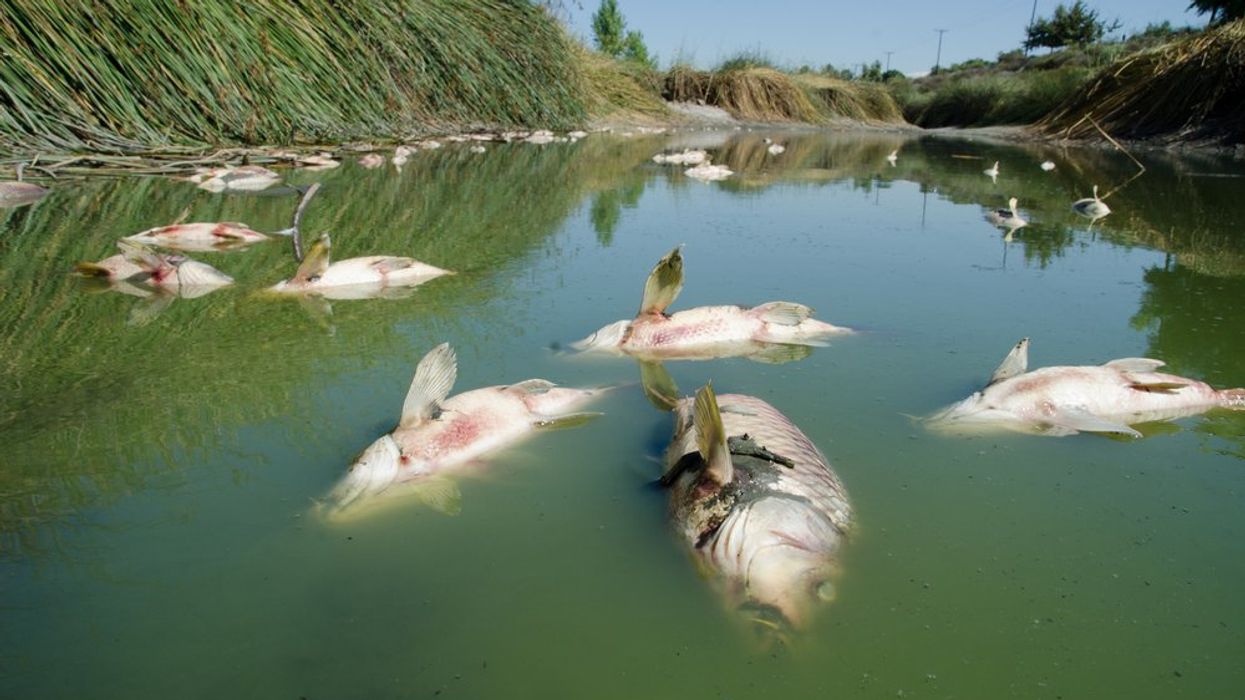The derailment of a train carrying hazardous chemicals earlier this month in Ohio has left residents concerned about how their health will be impacted. In animals and marine life, the effect is already clear.
State officials announced Thursday that over 43,000 aquatic animals — including fish, amphibians, and crustaceans — have potentially been killed in local streams and rivers following the disaster in East Palestine.
Mary Mertz, director of the Ohio Department of Natural Resources, said via The Washington Post that while species will repopulate and the waters will clear eventually, it will still be a lengthy process.
“We know it won’t be quick,” she said. “But it’s going to come back.”
Mertz added that the disaster instantly killed fish, but that officials disposed of the contaminated carcasses to prevent other animals from consuming them. She also noted that none of the dead species found are endangered, and that conditions have improved since the time of the derailment.
“We haven’t seen any sign of fish in distress since that time,” Mertz said.
While officials have not yet noted sickness or deaths in land animals, local farmers have noticed health complications in their livestock. Kayla Miller told The Post that many of her chickens have gotten sick, with one having seizures and another completely unable to walk. Some of her rabbits have died, and her potbelly pig is dropping weigh and producing discharge from its eyes.
According to Miller, "they were perfectly healthy before all of this happened."
Another farmer, Jacqueline Schmeltz, said that while her sheep are safe for the time being, long-term testing for contamination is necessary to ensure the safety of residents, livestock, and wildlife.
“Obviously, something that catastrophic to that extent has to be doing more to the environment and everything than what they’re saying," Schmeltz said.
- EPA Fines Norfolk Southern $70,000 Every Day It Falls Short of Cleaning Up Ohio Toxic Train Wreck ›
- Ohio Toxic Train Disaster: EPA Vows to Hold Rail Company Accountable ›



















































